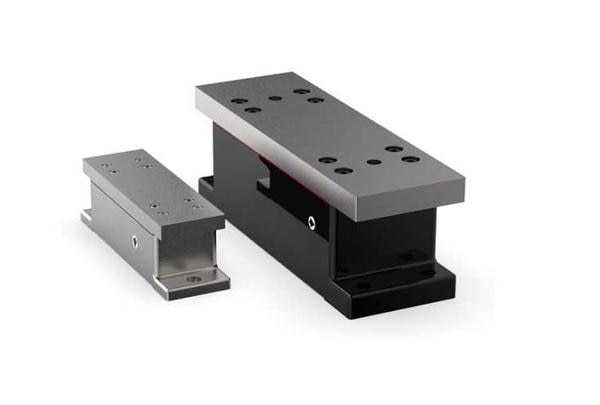Pillow Block Type Load Cell – Accurate Load Measurement for Rotating Equipment Introduction to Pillow Block Type Load Cells In the realm of industrial automation and precision weighing, the pillow block type load cell has emerged as a critical component for accurate force measurement. These specialized load cells are designed to measure the load or force applied through rotating shafts or pillow block bearings, commonly found in conveyor systems, belt-driven machinery, and rotating equipment. The integration of load cells into pillow blocks offers a compact, efficient, and reliable way to monitor mechanical loads in real-time. Their design supports direct mounting under existing pillow block bearings, making them a preferred choice in applications where downtime and modifications must be minimized. What Is a Pillow Block Load Cell? A pillow block load cell is a type of force sensor that is installed beneath a pillow block bearing. Pillow blocks are used to provide support for a rotating shaft and maintain its alignment, typically in heavy-duty industrial machinery. The load cell measures the force transmitted through the bearing, often in vertical or horizontal directions, depending on the mounting orientation. Unlike conventional load cells that may require complex mounting and calibration, pillow block type load cells are engineered to seamlessly fit under standard pillow block bearing housings, offering plug-and-play functionality. How Does a Pillow Block Load Cell Work? These load cells operate on the principle of strain gauge technology, where mechanical deformation under load is converted into an electrical signal. When the shaft and its attached bearing exert force onto the pillow block, the internal sensing elements in the load cell detect the strain and output a proportional electrical signal. The signal can be processed by a weighing controller or PLC (Programmable Logic Controller) to monitor loads in real-time. The result is precise, consistent data that helps in performance monitoring, overload protection, and weight-based control of materials. Key Features and Benefits 1. Easy Installation Pillow block load cells are designed to fit under existing pillow block bearings without significant modifications. Their low-profile and rugged design makes installation simple and quick. 2. High Accuracy These load cells provide excellent measurement accuracy with minimal drift, even in dynamic conditions. They are suitable for both static and dynamic load applications. 3. Robust Construction Typically made from stainless steel or alloy steel, pillow block load cells are built to withstand harsh industrial environments, including dust, moisture, and vibration. 4. Real-Time Load Monitoring Ideal for continuous processes, the real-time data provided helps prevent equipment failure due to overload and supports predictive maintenance strategies. 5. Compact and Space-Saving Their integration into the bearing system eliminates the need for separate weighing platforms or external sensors, saving space and reducing system complexity. Common Applications Pillow block type load cells are widely used in industries where rotating shafts, conveyors, and material handling systems are prevalent. Key applications include: Conveyor Belt Weighing Systems Measure load on belts and provide feedback to regulate feed rates and maintain optimal load balance. Paper and Textile Industries Monitor tension and pressure in rollers and shafts to ensure consistent product quality. Mining and Aggregate Processing Used in crushers, feeders, and screening systems to monitor mechanical load and reduce wear and tear. Food and Beverage Manufacturing Measure loads in high-speed packaging and material handling systems to maintain efficiency and reduce waste. Steel and Metal Fabrication Track mechanical stress on rotating shafts during manufacturing and assembly. Types of Pillow Block Load Cells Several types of pillow block load cells are available to suit specific applications: 1. Single-Axis Load Cells Measure force in one direction (typically vertical or horizontal) and are ideal for straightforward load monitoring tasks. 2. Multi-Axis Load Cells Measure force in multiple directions simultaneously, useful in complex systems where forces may act in more than one axis. 3. High-Temperature Load Cells Designed for environments with elevated temperatures such as metal processing and kilns. 4. Custom Load Cells Engineered to meet specific size, load range, and mounting requirements, often used in specialized OEM machinery. Factors to Consider When Choosing a Pillow Block Load Cell When selecting the right load cell for your application, consider the following: - Load Range Choose a load cell with a capacity that matches or slightly exceeds the maximum expected load. - Mounting Dimensions Ensure compatibility with the existing pillow block bearing system. - Environmental Conditions Consider protection ratings (IP67/IP68), temperature resistance, and corrosion resistance for your operating environment. - Output Signal Verify whether the system requires analog (e.g., 4–20 mA, mV/V) or digital output, depending on your data acquisition or PLC system. - Accuracy and Sensitivity Look for specifications such as non-linearity, hysteresis, and repeatability to ensure the level of precision required for your application. Installation and Maintenance Tips Proper installation and maintenance are crucial for optimal performance: Use flat, rigid mounting surfaces to prevent distortion. Align the load cell correctly with the direction of force. Avoid excessive torque during mounting to prevent damage. Regularly inspect cables and connectors for wear or damage. Calibrate the system periodically to maintain measurement accuracy. Conclusion The pillow block type load cell is a versatile, efficient solution for real-time load measurement in rotating equipment. Its ability to seamlessly integrate into existing bearing systems makes it an ideal choice for many industrial applications. Whether you're optimizing a conveyor line, monitoring roller tension, or implementing overload protection in heavy-duty equipment, this type of load cell delivers precision, reliability, and durability. With the growing need for automated, data-driven manufacturing, investing in accurate force measurement technology like pillow block load cells is a smart move for improving efficiency, safety, and equipment longevity. We are also supply in Andhra Pradesh, Arunachal Pradesh, Assam, Bihar, Chhattisgarh, Goa, Gujarat, Haryana, Himachal Pradesh, Jharkhand, Karnataka, Kerala, Madhya Pradesh, Maharashtra, Manipur, Meghalaya, Mizoram, Nagaland, Odisha, Punjab, Rajasthan, Sikkim, Tamil Nadu, Telangana, Tripura, Uttar Pradesh, Uttarakhand, and West Bengal
Send Message
